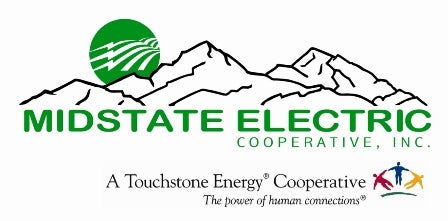Being part of a Cooperative is unique because they are member owned and operate for the benefit of the members, rather than to earn profits for investors. Cooperative members enjoy distinct advantages over investor-owned utility customers.
-
Locally owned and operated – MEC is owned and operated by our member-owners (customers) and focuses on your needs and local priorities. Members have local control because the Board of Directors reside within the co-op’s service area.
-
Member-Owners are first – Members know they can trust their electric cooperative, because it was created not to make a profit, but simply to provide reliable electricity and service at an affordable rate. Rates are based directly on what it costs the co-op to buy and deliver energy to each class of consumer.
-
Responsive to local needs – MEC works hard to achieve a better quality of life and higher level of service for our member-owners. Our goal is to exceed your expectations.
Cooperatives are based upon seven principles. These date back to 1844. Today, we still hold these principles up in the highest regard as guidelines to follow in all of our daily business practices.
The Seven Cooperative Principles
1: Voluntary and Open Membership
Cooperatives are voluntary organizations, open to all persons able to use their services and willing to accept the responsibilities of membership, without gender, social, racial, political or religious discrimination.
2: Democratic Member Control
Cooperatives are democratic organizations controlled by their members, who actively participate in setting their policies and making decisions. The elected representatives are accountable to the membership. In primary cooperatives, members have equal voting rights (one member, one vote) and cooperatives at other levels are organized in a democratic manner.
3: Members' Economic Participation
Members contribute equitably to, and democratically control, the capital of their cooperative. At least part of that capital is usually the common party of the cooperative. Members usually receive limited compensation, if any, on capital subscribed as a condition of the membership. Members allocate surpluses for any or all of the following purposes: developing the cooperative, possibly by setting up reserves, part of which at least would be indivisible; benefiting members in proportion to their transactions with the cooperative; and supporting other activities approved by the membership.
4: Autonomy and Independence
Cooperatives are autonomous, self-help organizations controlled by their members. If they enter into agreements with other organizations, including governments, or raise capital from external sources, they do so on terms that ensure democratic control by their members and maintain their cooperative autonomy.
5: Education, Training and Information
Cooperatives provide education and training for their members, elected representatives, managers, and employees so they can contribute effectively to the development of their cooperatives. They inform the general public - particularly young people and opinion leaders - about the nature and benefits of cooperation.
6: Cooperation among Cooperatives
Cooperatives serve their members most effectively and strengthen the cooperative movement by working together through local, national, regional and international structures.
7: Concern for Community
While focusing on member needs, cooperatives work for the sustainable development of their communities through policies accepted by their members.
